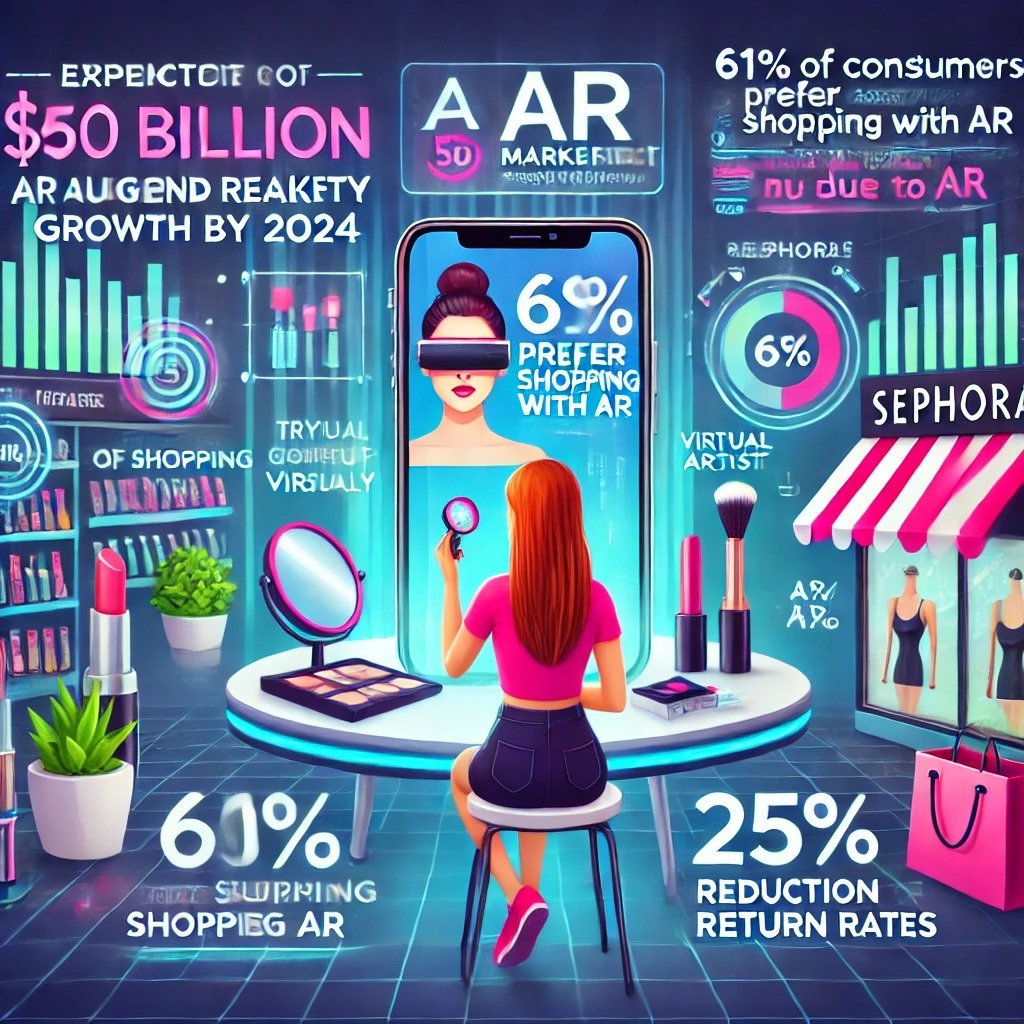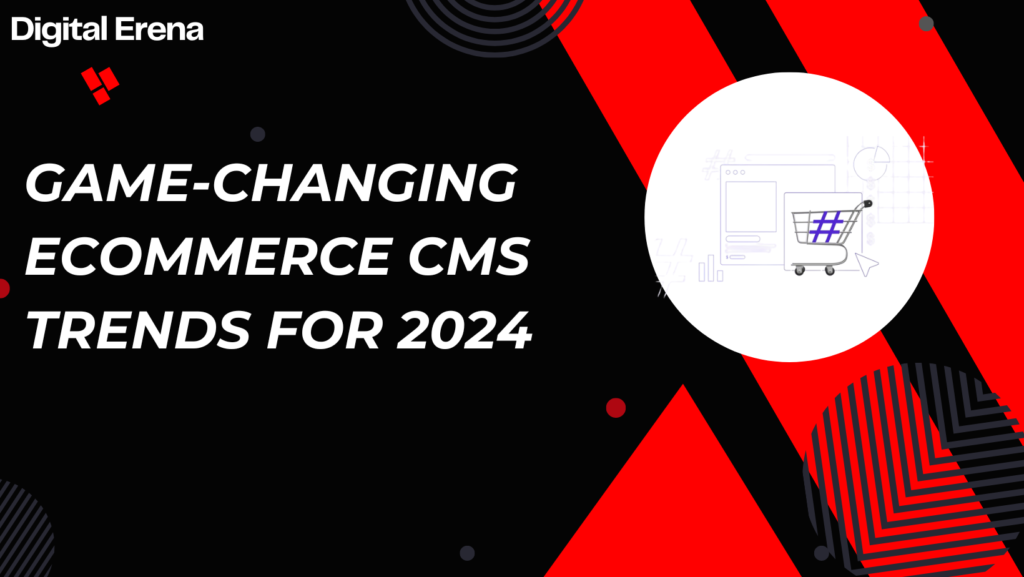The ecommerce industry is on the brink of another revolutionary year, with projections indicating that global ecommerce sales will surpass $6.3 trillion in 2024. At the heart of this transformation are the Content Management Systems (CMS) that power these digital storefronts. For businesses to remain competitive, it’s crucial to stay updated on the latest Ecommerce CMS Trends. This blog will explore the trends shaping the Future of Ecommerce CMS in 2024, focusing on how these advancements are set to revolutionize online retail.
The Growing Significance of Ecommerce CMS Trend
As the ecommerce industry continues its rapid growth, the role of a robust and flexible CMS cannot be overstated. By 2024, it’s expected that more than 2.14 billion people worldwide will purchase goods and services online. Staying updated with ecommerce CMS trends is crucial to capitalize on this expanding market. This massive shift toward digital shopping underscores the need for ecommerce platforms that can handle increasing traffic, provide personalized experiences, and adapt to new technologies.

Ecommerce in Numbers
- Global ecommerce sales are forecasted to exceed $6.3 trillion in 2024, up from $5.2 trillion in 2022.
- Mobile commerce is projected to account for 72.9% of all ecommerce sales by 2024.
- AI-driven ecommerce is expected to grow by 35%, with businesses that adopt AI expected to see a 30% increase in conversion rates.
Key Trends Shaping Ecommerce CMS in 2024
1. AI-Powered Personalization: The Future is Now
Artificial Intelligence (AI) is no longer a futuristic concept; it’s a cornerstone of modern ecommerce. In 2024, AI-powered personalization is expected to become a standard feature in Ecommerce CMS Trends. By analyzing vast amounts of data, AI enables businesses to tailor the shopping experience to individual customer preferences, significantly improving engagement and sales.
Statistical Insights:
- Personalization drives results: Companies that implement AI-driven personalization see a 20% increase in customer satisfaction and a 15% rise in conversion rates.
- Increased ROI: Businesses using AI for personalization report a 25% increase in ROI on marketing spend.
Real-World Example: Amazon, the global ecommerce giant, attributes 35% of its sales to its AI-powered recommendation engine. This ecommerce CMS technology analyzes customer behavior, purchase history, and browsing patterns to offer highly personalized product suggestions, demonstrating the significant impact AI can have on ecommerce performance.
2. The Shift to Headless Commerce: Flexibility and Speed
Headless commerce is gaining traction as businesses seek more flexible and scalable ecommerce CMS solutions to meet the demands of modern consumers. Unlike traditional CMS platforms, headless commerce decouples the frontend (the user interface) from the backend (the data management). This allows businesses to deliver content and products across multiple channels more efficiently.
Statistical Insights:
- Adoption rate: By 2024, it’s estimated that 40% of ecommerce businesses will adopt headless commerce solutions.
- Speed matters: Headless CMS can improve page load speeds by up to 50%, a critical factor considering that a 1-second delay in page load time can lead to a 7% drop in conversions.
Case Study: Nike’s transition to a headless commerce architecture allowed the company to provide a more seamless shopping experience across its website, mobile app, and in-store kiosks. As a result, Nike saw a 30% increase in online sales and a 20% improvement in customer retention.
3. Enhanced Mobile Optimization: Meeting Consumers Where They Are
With mobile commerce set to account for nearly three-quarters of all ecommerce sales by 2024, ensuring your CMS is optimized for mobile devices is more critical than ever. A mobile-optimized CMS ensures faster loading times, intuitive navigation, and a responsive design that adjusts seamlessly to different screen sizes.
Statistical Insights:
- Mobile traffic dominance: Over 60% of ecommerce traffic now comes from mobile devices, and mobile commerce is expected to reach $3.56 trillion in sales by 2024.
- Impact of speed: A delay of just one second in mobile load times can result in a 20% drop in conversion rates.
Success Story: ASOS, a global fashion retailer, focused on improving its mobile optimization strategy, resulting in a 50% increase in mobile conversions and a 30% decrease in bounce rates. These changes highlight the importance of mobile optimization in the modern ecommerce landscape.

4. Integration with Augmented Reality (AR): Transforming Online Shopping
The way consumers interact with things online is being revolutionized by augmented reality, or AR. AR integration in ecommerce CMS platforms allows customers to visualize products in their environment before making a purchase, leading to more informed buying decisions and reducing return rates.
Statistical Insights:
- AR adoption: By 2024, the AR market is expected to grow to $50 billion, with ecommerce being a significant contributor.
- Consumer preference: 61% of consumers prefer to shop with retailers that offer AR experiences.
- Return rate reduction: AR can reduce return rates by up to 25%, as customers have a clearer understanding of what they are purchasing.
Example: Sephora, a leading cosmetics retailer, uses AR through its Virtual Artist app, allowing customers to try on makeup virtually before buying. This innovation has led to a 30% increase in customer engagement and a significant reduction in product returns.

5. Omnichannel Experiences: A Unified Approach to Customer Engagement
The Future of Ecommerce CMS is undeniably omnichannel, where customers expect a seamless experience across all touchpoints—online, mobile, and in-store. An omnichannel CMS integrates various channels to provide a consistent and personalized shopping experience, regardless of where or how customers interact with the brand.
Statistical Insights:
- Omnichannel importance: Companies with strong omnichannel strategies retain 89% of their customers, compared to 33% for companies with weak omnichannel strategies.
- Customer engagement: Businesses that adopt omnichannel strategies see a 23% increase in customer engagement.
Real-World Example: Starbucks has mastered the art of omnichannel retail by integrating its mobile app, loyalty program, and in-store experience. Customers can order via the app, earn rewards, and redeem them in-store, creating a seamless and engaging experience. This approach has led to increased customer loyalty and higher average transaction values.

6. Sustainability and Ethical Commerce: The New Standard
In 2024, sustainability and ethical practices will become central to ecommerce CMS platforms. Consumers are increasingly making purchasing decisions based on a brand’s environmental and ethical practices. CMS platforms are adapting by offering features that allow businesses to highlight their sustainability efforts, such as carbon-neutral shipping options, ethical sourcing information, and waste reduction initiatives.
Statistical Insights:
- Consumer preference: 72% of consumers say they are more likely to purchase from a brand that reflects their values on sustainability.
- Impact on sales: Businesses that prioritize sustainability have seen a 20% increase in sales, as more consumers choose brands that align with their values.
Case Study: Patagonia, an outdoor clothing brand, has integrated sustainability into every aspect of its business. From its website CMS to its product sourcing, Patagonia highlights its commitment to environmental responsibility. This focus has not only bolstered its brand reputation but also increased its revenue by 30% in the past five years.

Key Features of a Modern Ecommerce CMS
To keep pace with the evolving ecommerce landscape, a modern CMS should include the following features:
- AI and Machine Learning Integration: For delivering personalized shopping experiences and optimizing marketing strategies based on data-driven insights.
- Headless Architecture: Providing flexibility to deliver content across multiple channels, ensuring fast and consistent user experiences.
- Mobile Optimization: Critical for capturing the growing mobile audience and improving conversion rates on mobile devices.
- AR Capabilities: Enhancing customer engagement by allowing shoppers to visualize products in their environment, reducing returns.
- Omnichannel Support: Ensuring a seamless and integrated shopping experience across all customer touchpoints.
- Sustainability Features: Enabling businesses to showcase their environmental and ethical practices, aligning with consumer values.
- Scalability: Supporting business growth by handling increased traffic, transactions, and product catalogs.
- User-Friendly Interface: Making it easy for non-technical users to manage content and product updates efficiently.
FAQs
Q1: What is a headless ecommerce CMS?
A headless ecommerce CMS is a system where the frontend (user interface) is decoupled from the backend (content management system). This allows for greater flexibility in delivering content across different platforms and devices, providing a consistent user experience.
Q2: How does AI personalization impact ecommerce sales?
AI personalization analyzes customer data to deliver tailored product recommendations, dynamic content, and targeted marketing campaigns. This can lead to a 20% increase in customer satisfaction and a 15% boost in conversion rates.
Q3: Why is mobile optimization crucial for ecommerce in 2024?
With over 60% of ecommerce traffic coming from mobile devices, a mobile-optimized CMS ensures fast loading times, intuitive navigation, and a responsive design, all of which are essential for retaining mobile shoppers and maximizing conversions.
Q4: How does AR integration reduce return rates?
AR allows customers to visualize products in their environment or try on items virtually, leading to more informed purchase decisions. This can reduce return rates by up to 25%.
Q5: What is the importance of omnichannel experiences in ecommerce?
Omnichannel experiences ensure that customers have a consistent and seamless interaction with a brand across all channels. Companies with strong omnichannel strategies see higher customer retention and engagement rates.
Conclusion
The Ecommerce CMS Trends for 2024 highlight the rapid evolution of the digital marketplace. As businesses navigate these changes, staying informed about the Future of Ecommerce CMS is essential.


Can you be more specific about the content of your article? After reading it, I still have some doubts. Hope you can help me.